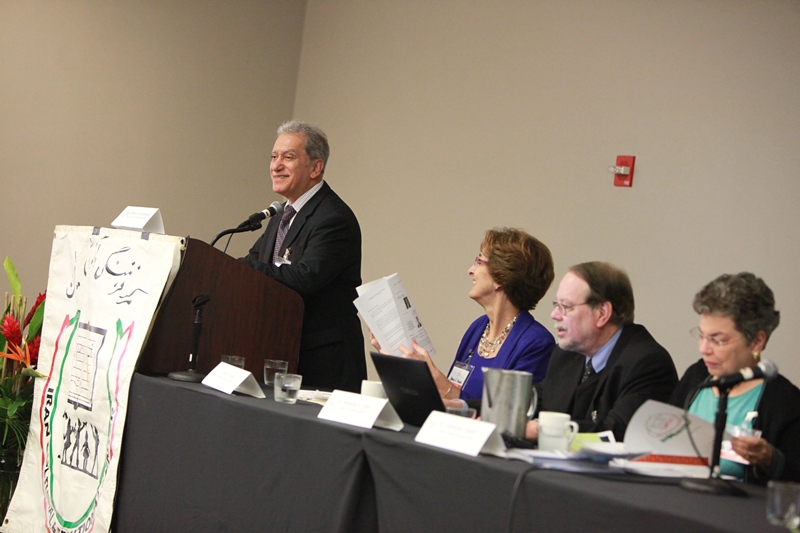Plenary Session: The Case for Connecting Foreign and Heritage Language Education: Educating Persian Bilinguals in the U.S
A comparison of foreign language public and private school data with census data indicates a mismatch between what is taught in schools and the heritage languages spoken in the U.S. This panel will analyze this mismatch and addressees how federal, K-12, and community connections can overcome it to advance language teaching, especially Farsi, in the U.S.The Center for Applied Linguistics regularly conducts a national survey of elementary and secondary school language programs to determine how well the United States is preparing students to acquire proficiency in foreign languages. Survey results expand our knowledge of language education at national and regional levels, suggest needs for increased or improved instruction, and provide data to inform language education policy at local, state, and national levels. At the same time, demographic studies using census data show that the languages spoken in communities in the United States are very different from those taught in public and private schools. Analysis of community-based programs outside the public sector, such as the Iran Cultural and EducationalCenter, shows that these schools are positioned to connect with languages spoken in the U.S. and their communities. Recent efforts of the National Security Language Initiative seek to make a connection between public and private school language education and languages spoken in communities.Panel participants will: (1) provide an overview of what languages are currently being taught in schools in the U.S., (2) discuss where Farsi fits in the overall picture, (3) provide research on heritage language transmission and loss (the second generation is usually bilingual and has the ability to speak English well; the third generation rarely retains the heritage language), (4) highlight the Farsi STARTALK program, and (5) recommend connections that can be made to promote Farsi-English bilingualism in the U.S. Recommendations include increasing the number of Farsi community schools, expanding Farsi STARTALK summer programs for teachers and children, exploring implementation of Farsi immersion programs in public schools, and promoting Farsi language and culture learning as part of global education in public school curricula.
بررسی آموزش زبان های خارجی و زبان های مادری
.ترویج آموزش زبان فارسی درجهت افزایش دانش آموختگان دوزبا نه
نتایج آخرین سرشماری نمایانگر تفاوت چشمگیری است بین زبان هایی که درآموزشگاه ها عرضه میشوند وزبان های مادری که بسیاری از گروه ها به آنها سخن می گویند. سخنرانان این نشست ضمن بررسی این مسأله، راهها ی ممکن برای پیشبردآموزش این زبان ها، بویژه زبان فارسی، را با شرکت گنند گان در میان خواهند گذارد
:نکات عمده گفت و گوهای این نشست به ترتیب زیرخواهد بود
،زبان هایی که در حال حاضر در مدارس درس داده می شوند
،موقعیت کنونی آموزش زبان فارسی در آمریکا
پژوهش های موجود در زمینه زبان های مادری، یا زبان هایی که از نسلی به نسل دیگر رسیده اند و چگونگی انتقال آنها به نسل های دوم و سوم
، زبان فارسی در برنامه استار تاک دانشگاه مریلند
.پیشنهادی چند در جهت پیشبرد آموزش زبان فارسی.ترویج آموزش زبان


